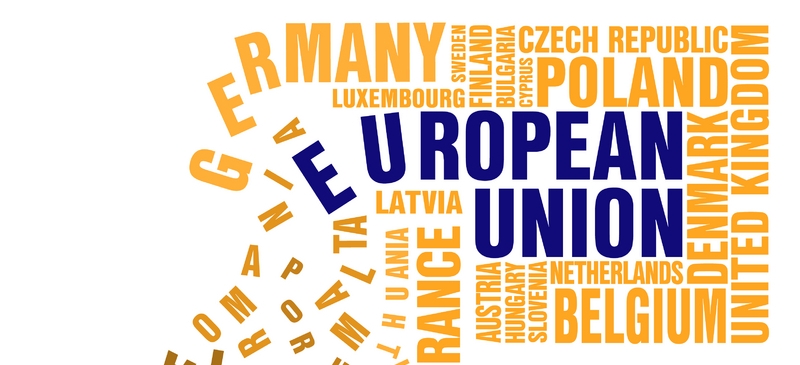
Will the euro crisis lead to the break-up of EU member-states?
Last month over a million Catalonians marched for independence in Barcelona. Opinion polls say that support in the province for separation from Spain has doubled since the economic crisis started – and some polls put it at over 50 per cent. The Economist sees a clear link with the economic crisis, noting recently: "Whereas one-third of Catalans are convinced separatists, many others are simply enraged by their tax money propping up poorer regions." Meanwhile in Belgium, Bart de Wever's nationalist New Flemish Alliance did well in Flanders' local elections, and de Wever has become mayor of Antwerp. Like Catalan separatists, the Flemish dislike subsidising their poorer neighbours in Wallonia. The two events seem to suggest a trend. But while bailouts and the austerity that stems from the euro crisis are making central governments unpopular throughout Europe, Spain's and Belgium's woes may be a poor predictor of developments elsewhere.
The growing support for independence in Catalonia is only partly driven by the crisis. Jordi Vaquer of the Barcelona Centre for International Affairs notes that the Partido Popular's (PP) return to power in Madrid in 2012 bears some responsibility for the surge of pro-independence sentiment in Catalonia. The conservative PP blames Spain's budgetary woes on the provinces' profligacy (they represent 40 per cent of total public spending in Spain). The Madrid government has set out to tighten control over the regions' finances. Many in Catalonia think the PP is using the crisis as an excuse to pursue their longstanding agenda of curbing regional autonomy. They note that Spain's economic woes are mainly the result of excessive private sector borrowing, over which the provinces have had no control.
Pro-independence sentiment in Spain and other parts of Europe has also grown stronger because some separatist parties have grown more adept at selling their message. The New Flemish Alliance (NVA) is a much smoother party than the hard-right Flemish Interest, who NVA replaced as the standard-bearer for independence. In Edinburgh, Alex Salmond of the Scottish National Party (SNP) has proven to be a capable leader, who has governed competently during his five-and-a-half years in power (Scotland has enjoyed considerable autonomy since the 1998 devolution of some powers from London to Edinburgh). In an effort to showcase his party's new moderation, he recently persuaded it to ditch its longstanding policy of withdrawal from NATO. Both de Wever and Salmond say they would keep a common army with their southern neighbours. The success of these moderate, articulate nationalists in some parts of Europe has boosted the appeal of pro-independence movements elsewhere. "Previously, voters in Catalonia saw separatism as something that dictators in the former Soviet Union and Yugoslavia did. Now it has become difficult to brush aside nationalists as crazies," Vaquer observes.
But while the Flemish and Scottish pro-independence parties have learned not to scare voters, the appeal of nationalism in other parts of the EU has waned. The Slovaks elected a parliament in 2012 that for the first time in the country's 20-year history does not include the Hungary-bashing Slovak National Party (voters have grown wary of infighting in its top ranks, and of its leader's penchant for yachts and jets). A mildly-separatist party of ethnic Hungarians in Slovakia has also lost its place in the parliament in the same election; another mostly Hungarian party that openly favours good relations with the central government in Bratislava has taken its place. Politics in Europe remains deeply local – and while nationalist leaders in Spain or Flanders have being doing well, others have fallen victim to their own hubris or incompetence.
In 2014 the Scots may dampen separatist spirits in Europe. Earlier this month, the SNP agreed with the London government to hold a referendum on Scottish independence in the autumn of that year. However, a recent Ipsos MORI poll shows that only 35 per cent of those who plan to vote will opt for separation from Britain. If the Scottish referendum on independence fails, nationalist movements like those in Catalonia or the Basque country may find their case weakened (though the Scottish nationalists may make progress with their demands for greater autonomy from the central government).
In Scotland, ironically, the euro crisis has proved very damaging to the cause of independence. In the past the SNP said that an independent Scotland would join the euro. In current circumstances that policy would not be a vote winner. So the SNP’s new line is to favour independence but keep the pound. But if there is one thing that the euro crisis has taught people, it is that currency unions do not work without some sort of fiscal union. A separate Scotland that used the pound would have to accept the constraints of a 'fiscal compact' with the remainder of the United Kingdom. So it would not be as free from London’s dictat as many Scots would wish.
There is little doubt that austerity measures have generated anger against political classes everywhere in Europe. In Spain, this protest takes the form of demonstrations against the 'Madrid elites', from which pro-independence movements benefit. In the future, similar conditions may exist in other parts of Europe, such as Italy or France, so events in Catalonia or Flanders bear watching. But it would be too simple to extrapolate from them that other countries will go the way of Spain or Belgium. The grievances that drive pro-independence movements differ from country to country. And so does the quality of local political elites, both on the pro-independence side and among the central governments, which have the job of addressing the grievances that fuel separatism.
Tomas Valasek is former director of foreign policy and defence at the CER.
